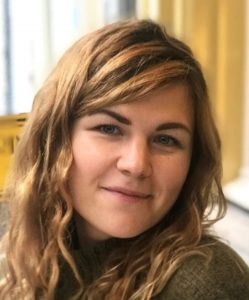Stigma and discrimination related to HIV status are the major barriers for people living with HIV (PLWH) to access prevention, care and support services. The first step in overcoming stigma is to break the wall of silence. Approval of regulations at the country level is a real victory. One year ago, the National Plan to Fight Stigma and Discrimination against People Living with HIV was approved in Kazakhstan
By Marina Maximova
Regional communications specialist of the Central Asian Association of People Living with HIV. Press secretary of the Kazakh Scientific Center of Dermatology and Infectious Diseases of the Ministry of Health of the Republic of Kazakhstan
Olga Shelevakho
Communications officer, AFEW International
Stigma Affects the Motivation for HIV Testing

First published 17th July 2018. Updated 13th August 2019 as part of AFEW’s Mission. AFEW is dedicated to improving the health of key populations in society. With a focus on Eastern Europe and Central Asia, AFEW strives to promote health and increase access to prevention, treatment and care for major public health concerns such as HIV, TB, viral hepatitis, and sexual and reproductive health.
As estimated by UNAIDS, 35 million people globally died of AIDS-associated diseases since the onset of the epidemic. People living with HIV die of tuberculosis, cancers, hepatitis… Meanwhile, there is no data on how many lives are lost to stigma. Today stigma is the strongest barrier for testing among those who are not aware of their status and for receiving services among people living with HIV (PLWH).
Migrant with HIV – double stigma
Salavat Kabjalelov is an outreach worker and a peer consultant in the Zabota (‘Care’) Charitable Foundation (Almaty, Kazakhstan). He helps labour migrants: offers consultations on HIV, tells about the need to get tested, navigates clients for diagnostics to the AIDS Centre and to the tuberculosis clinic. Salavat can find the right words for every client. He used to be a migrant as well. He had no citizenship or registration, no access to antiretroviral treatment (ART) and he wanted to hide not only from his problems but also from hostile stares and rough remarks of people around him.
He and his wife lived a quiet life, not seeking medical care. For migrants, the main thing is their job, not their health. Then, 4 years ago something tragic happened. Salavat lost his wife. The young woman died of cancer.
“I tried to arrange hospice care for my wife. I was even ready to pay for it, but it was not possible. They refused me. She was living with HIV. It appeared that it was more important to be a citizen. If you had a severe disease, it was not an argument. The good news is that now the situation in Kazakhstan is improving and migrants with HIV are provided with ART. However, it will not bring my wife back,” complains Salavat.
Everyone goes through self-stigma
Lyubov Vorontzova works in the Kazakhstan Union of People Living with HIV and Central Asia Association of People Living with HIV. She is a delicate woman of strong character, who can convince people both from the tribunes of international forums and in one-on-one arguments. Thirteen years of living with HIV made her a leader. She experienced stigma in a private health centre where she came when she got pregnant – young and confused. An older woman gave her an advice – to seek health services only in the AIDS Centre. However, Lyubov says that her self-stigma was even stronger. Every person who learns about having HIV faces this problem.
“I no longer consider myself a victim as it makes it impossible for me to live and grow. Good support in fighting self-stigma is trusting people and knowing your rights. You have to live on, not restricting yourself, and overcome your fears. Otherwise, you may reach the worst point,” says Lyubov.
Lyubov does not hide her status. Vice versa, she often takes part in TV shows and open discussions as an expert. She is convinced that stigma affects the motivation for HIV testing. People are afraid to get tested for HIV as they are worried that their test may come back positive. At the same time, if a person living with HIV starts the therapy too late, the probability of treatment success is much lower and it can even lead to death of the patient.
Every tenth person living with HIV had suicidal thoughts
Four years ago, the Central Asian Association of People Living with HIV within the Leader of People Living with HIV Project funded by USAID for the first time in the region carried out a survey to assess the index of stigma in three Central Asian countries – Kazakhstan, Kyrgyzstan and Tajikistan.
Results of the study in Kazakhstan showed that every tenth person living with HIV had suicidal thoughts. PLWH aged 30 and above suffer most from self-stigma as well as people with small (one to nine years) history of living with HIV. Self-discrimination mainly leads to the decision not to have any more children. Every third person living with HIV in the country makes such a decision.
The study demonstrated that the experience of injecting drug use as well as the experience of imprisonment were the drivers of stigma towards people living with HIV. Most often, PLWH faced discrimination from the side of health workers (first of all, refusal to provide health care) and public officials, while discrimination from the side of their immediate social environment was far less common. Moreover, the cases of discrimination were accumulated in the first ten years of a person living with HIV.
Has the situation changed today? The Central Asian Association of PLWH plans to make a new research soon.
No silence about stigma
The first step in overcoming stigma is to break the wall of silence. Approval of regulations at the country level is a real victory. One year ago, the National Plan to Fight Stigma and Discrimination against People Living with HIV was approved in Kazakhstan.
“Stigma and discrimination related to HIV status are the major barriers for PLWH to access prevention, care and support services. To end the spread of HIV, a focus should be made on the complete eradication of discrimination, first of all in health institutions. It will allow achieving a significant reduction in the growth of HIV epidemic,” says Baurzhan Bayserkin, Director of the Kazakh Scientific Center of Dermatology and Infectious Diseases of the Ministry of Health of the Republic of Kazakhstan.

